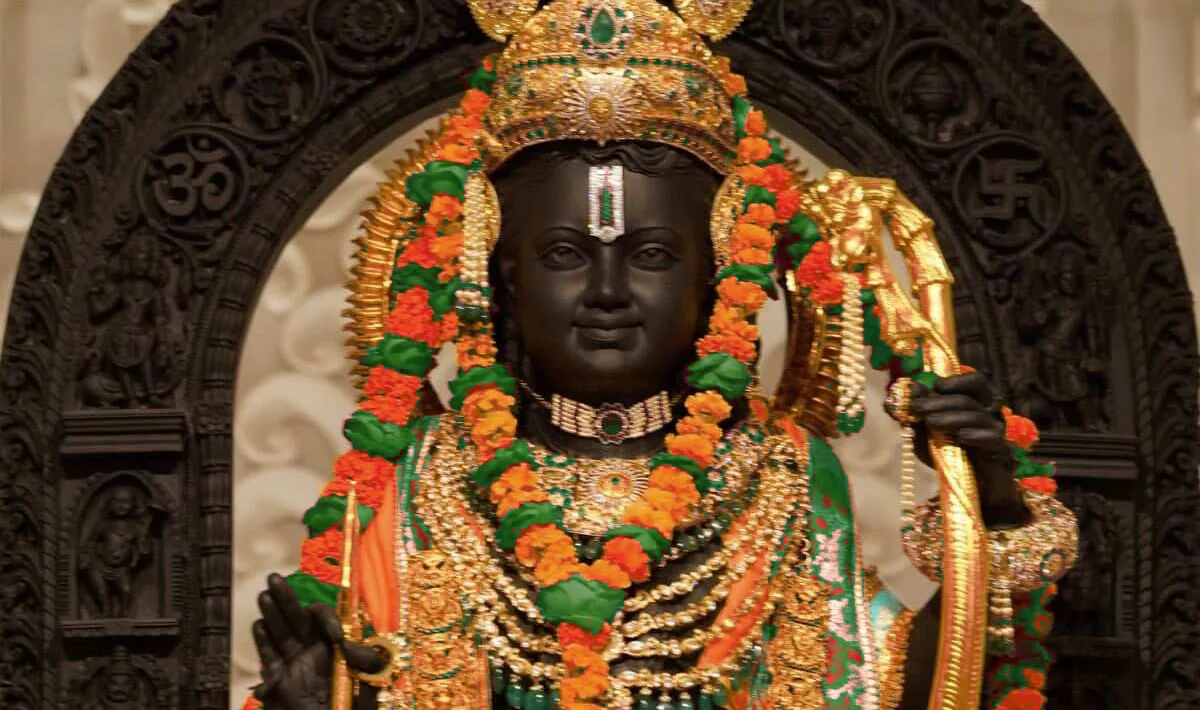Ugadi, also known as Samvatasardi, is celebrated as the New Year’s Day in the South Indian states of Andhra Pradesh, Telangana and Karnataka. It falls in the month of April every year. Ugadi has been an important and historic festival of south Indian Hindus with medieval text and inscriptions.
Ugadi
Ugadi also referred to as ‘Yugadi’ is a major festival celebrated in the southern state of Karnataka and Andhra Pradesh. Ugadi is a combination of two words yug- ‘age’ and Adi- ‘new beginning’. Thus, it is celebrated as the beginning of the new year. On this day people wear new clothes and greet people with good wishes and blessings. They treat themselves with yummy dishes especially prepared on this day. Prayers are offered and houses are cleaned with beautiful rangolis at the doorstep and also decorations with flowers and mango leaves called as toran. Buying and giving gifts, wearing new clothes, massaging with special sesame oil and taking a bath before visiting the temple, are rituals followed on this day.
The festival is celebrated to acknowledge the day on which Brahma created the earth. The day also marks the beginning of spring season with new plants and leaves rejuvenating marking the beginning of new and fresh life.
Deities associated with the Festival
The Ugadi puja is done by worshipping several Gods and Goddesses. South Indians mainly worship Bhagwan Brahma, Bhagwan Ganesha, Bhagwan Vishnu, Mata Parvathi, Shri Lakshmi.
Origin and Significance
Ugadi is a word derived from two words, ‘yuga’ meaning period and ‘Adi’ means the beginning. Thus, Ugadi or Yugadi symbolizes new beginnings. It originated as the day of creation of the world by Brahma. If you are planning to start something new, start it on Ugadi. Ugadi is known to be the day of new beginnings and ensures one’s success in new ventures. It signifies the beginning of new month Chaitra Maah which is the start of the year as per Hindu calendar. It falls on the Day after Amavasya with 27 Nakshatra Revati. As per the Gregorian calendar, it falls in March or April.
It is also the start of spring season in India which signifies the start of new beginnings in every phase of life. The main message of celebrating Ugadi festival is to rise beyond all negatives, sorrow and spread happiness and joy all over with new vigour and freshness.
Religious Significance
The grand festival of Ugadi is celebrated with great enthusiasm and excitement every year in Karnataka, Andhra Pradesh and Telangana. It is observed on the first day of Chaitra Masam which is the beginning of new year as per Hindu calendar. The vibrant festival is celebrated to welcome abundance, prosperity and happiness at the beginning of New Year. Ugadi festival day is the time to start something new. Devotees from all across the state celebrate it by participating in religious and cultural gatherings and preparing a feast called Bevubella. This feast is a special delicacy made from raw mango, jaggery, tamarind salt and little jaggery powder.
One should visit the temple to be a part of the religious gatherings and offerings to God at the start of the New Year.
Customs, Traditions and Rituals
Mango leaves and coconut are considered of great significance in Hindu culture and they are used in Ugadi festivals too. People clean their house with the sacred cow dung paste and water. The Ugadi festival celebrations are marked by social gatherings and great religious vibes.
- People begin the day by taking a bath and wearing new clothes.
- Mango leaves are used to decorate house entrances to please Bhagwan Kartikeya and Bhagwan Ganesha as it is believed that they love mangoes. These rituals are followed so that devotees should be blessed with health, wealth and prosperity.
- Making beautiful rangolis outside home at the entrance is also an important part of Ugadi festival.
- One of the rituals of Ugadi festival is Panchanga Sravanam. In this a pundit is called to forecast the future of each of the family members at the beginning of the new year.
- Kavi sammelan or gathering of poets is also organised where people actively engage themselves in discussions and recite good poems.
- Several delicacies are prepared as a part of the custom. Ugadi Pachadi, a special dish called Bevubella, is prepared as a compulsory ugadi festival ritual. The dish is prepared with ingredients like Jaggery (sweet), Raw mango(sour), salt(salty), tamarind(tangy) and little chilli powder.
Although the rituals are mainly common but here are some which are specific to states as:
Andhra Pradesh- People, before taking a bath apply sesame oil all over their body and head and visit the temple to seek blessings of Bhagwan after the bath.
Karnataka- People of Karnataka as a ritual, prepare a garland of Jasmine and offer it to Bhagwan. They place a coconut at the top of kalash beside the door as a symbol of peace and prosperity to their homes.
Puja Vidhi and Katha
On the main festival day, you should get up early in the morning and take a bath as is your custom. Make a swastika symbol at the place of worship after cleaning the place and then place a clean cloth on the newly constructed area and make an ashtadal lotus with haldi and saffron dyed on it. You must then Install the murti of Brahma and then worship Ganesha, Ambika, take flower and water in hand and recite mantra of Brahma and wish for peace and happiness.
Brahmans are also invited on the same festival day and offered sattvic food. A new panchang is also borrowed and is also donated as per your capacity.
Legend
According to puranas a demon named Samakasura stole the Vedas written by Veda Vyasa and hid them in the sea. The Veda scholars and saints who came to know about the issue went to Bhagwan Brahma and Bhagwan Vishnu seeking their help. Bhagwan Vishnu took the avatar of fish, popularly known as Matasya avatar, one of his dashavataras or ten incarnations, and killed demon Samkasuram. He then returned the Vedas to Bhagwan Brahma. Brahma, after receiving the Vedas, created the world on the first day of Shukla Paksha in the month of Chaitra which is also the day of onset of spring season.
The followers of Hindu tradition celebrate this day on which Brahma created the world as the first day of the year, known as Ugadi.
Celebrations across India
Ugadi is celebrated across India as beginning of new year with different names, customs and traditions. In south Indian states of Andhra Pradesh, Telangana and Karnataka, it is celebrated as Ugadi. In Maharashtra as Gudipadwa in which a kalash with a stick and mango leaves is mounted outside the house symbolizing peace and prosperity, in Punjab it is celebrated as Baisakhi, as Vishu in Kerala and Bihu in Orissa.
How to Observe the Festival
- People buy new clothes and items for the festival. They start the day after taking a bath and decorating the entrance with mango torans and beautiful rangolis.
- Tasty delicacies especially for Ugadi, are made with raw mango, jaggery, tamarind, salt and chilli powder.
- Rooms are decorated in different ways and we can also plant new saplings as start of the spring season.
- Devotees worship Brahma at home itself followed by many rituals and Kavi Sammelan, charity.
Benefits of celebrating Festival
It is celebrated as the first day of Hindu calendar when Brahma created the world. Thus, worship of God and seeking blessings on this day marks new freshness, peace, prosperity in yourself and family members.



